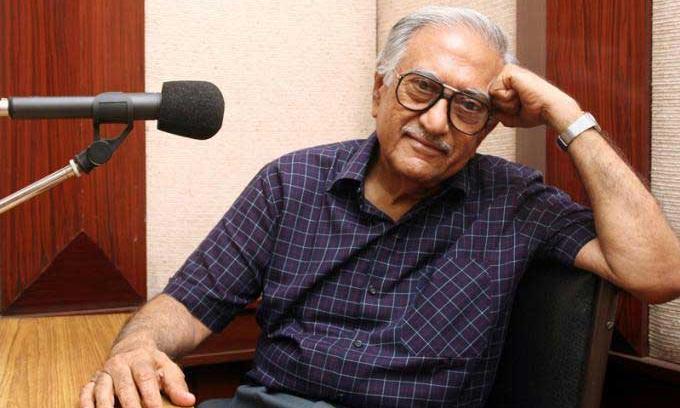
Ameen Sayani’s iconic ‘bhaiyon aur behno’ greeting becomes silent forever
text_fieldsIconic radio presenter Ameen Sayani, renowned for his legendary show "Binaca Geet Mala," passed away at the age of 91 after suffering a heart attack on Tuesday night. Confirming his father's demise, Rajil Sayani revealed that despite efforts by medical professionals at HN Reliance Hospital in Mumbai, Ameen Sayani couldn't be saved.
Born in 1932, Ameen Sayani hailed from a family deeply rooted in literature and language. His early exposure to editing a journal alongside his mother, Kulsum Sayani, and having a prominent English broadcaster brother, Hamid Sayani, shaped his path in broadcasting. Sayani initiated his illustrious career with Radio Ceylon in 1951, marking the beginning of an era in Indian radio.
His distinctive greeting, "Namaskar bhaiyon aur behno, main aapka dost Ameen Sayani bol raha hoon," became synonymous with his voice, captivating listeners across a newly independent India. Sayani's engaging and accessible style endeared him to audiences, especially during a time when All India Radio restricted Bollywood music broadcasts. His show not only entertained but also promoted simple Hindustani, resonating deeply with people nationwide.
"Binaca Geetmala," initially a 30-minute program on Radio Ceylon, evolved into a cultural phenomenon throughout the 1950s, retaining its essence through various name changes. Despite its conclusion in 1994, the show experienced a revival in the early 2000s, demonstrating its enduring popularity. Sayani's unparalleled contributions as a voiceover artist extended beyond radio programs, earning him recognition in the Limca Book of Records for approximately 19,000 jingles.
His interactions with stars from the Golden Era, including memorable interviews with Lata Mangeshkar, Kishore Kumar, and Raj Kapoor, further solidified his status as a revered broadcaster. Sayani's impact transcended borders, with his voice becoming synonymous with the iconic "Binaca Geetmala" on Radio Ceylon, reaching audiences across the Indian subcontinent.
Scholar Isabel Huacuja Alonso emphasized the significance of language in Sayani's appeal, highlighting his ability to connect with diverse audiences without compromising regional identities. Coincidentally, Sayani's passing on February 21 coincides with International Mother Language Day, underscoring his profound influence on language and culture.
As tributes pour in across social media, Sayani's legacy lives on through his iconic greeting, "behno aur bhaiyon," a timeless reminder of his warmth and inclusivity on All India Radio's Vividh Bharati broadcast. Ameen Sayani's contributions to Indian radio broadcasting have left an indelible mark, shaping the industry for generations to come.






















